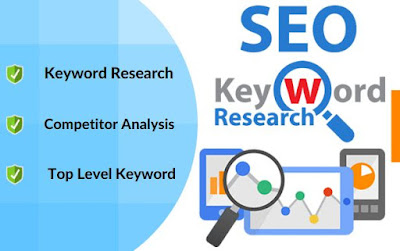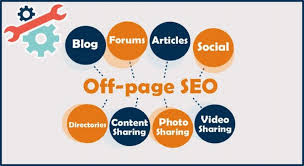How SEO Is Impacted by Google's No follow, Sponsored and UGC Link?
In September 2019, after the introduction of the nofollow link attribute, Google announced significant changes to its processing. These innovations are designed to help the search engine better understand the nature of links, have caused confusion and a number of questions from webmasters. Let's have a look at the following details on how SEO is impacted by Google’s No Follow, sponsored and UGC link:
 |
| SEO company in Bangkok |
Major Changes
Now in link attribution, you can use three attributes for links like “nofollow”, “sponsored” and “UGC”, each of which reinforces a different value. For ranking purposes, Google now treats each “nofollow” attribute as a hint rather than a directive. This means Google will consider new link attributes to improve inventory ranking.
At the moment, the search system does not crawl and index the contents of the outbound link with the attribute rel = "nofollow". Next year everything will change, and then Google will consider the directive only as a hint. The search engine allows the simultaneous use of attributes in relation to one link. If the links are advertising, then Google recommends using the attributes rel = "nofollow" and rel = "sponsored".
Entering these attributes does not mean that webmasters need to quickly change the characteristics of links. Fines are not provided, however, as are bonuses. Resource owners who have used nofollow to limit the scanning process to bots are now forced to revise their prohibition strategies.
Why Has Google its Approach to Nofollow Approach?
The search engine introduced the nofollow attribute in 2005, so that site owners can deal with comment spam and dubious links in UGC content. Links to spam or low-quality sites can harm the resource, and nofollow allowed publishers to protect themselves from them.
Google also required the use of nofollow for purchased and other artificial links. If the search engine caught the site in link schemes, then it could impose manual sanctions on it. This system generally worked but some large sites added the nofollow attribute to all links in order to avoid sanctions or due to the inability to properly control user-generated content (UGC). This has made parts of the link graph less useful to Google.
Regarding nofollow as a hint, Google will be able to better embed these signals in its algorithms. This change can have a positive effect on noteworthy content creators. The reason is that a wider bar of the link graph is more likely to influence the ranking.
Does the Webmaster Need to Adjust Everything?
This is not necessary if we are talking about most sites. There is no need to consciously change the links that are. However, a number of cases assume that you can use new attributes for existing links:
· If the owner of the resource wants Google to be able to learn more about it.
· The changes are justified for SEO specialists who used rel = "nofollow" to save the crawling budget.
The final decision is applied by the webmaster. You should be aware that when registering a new directive there is no guarantee that the resource will be better visible in the search. However, if you do not use it, then there will be no Google penalty.
How to Work with New Attributes?
We suggest analyzing when and how to use attributes, and what can happen if you ignore the rules. If you need to specify a link, then everything is clear:
· rel = "nofollow": It is a standard prohibition directive. It is used if you do not want Google to associate a site with the site to which the link points. For internal links, write the ban in robots.txt.
· rel = "sponsored": It is an attribute denoting advertising (sponsor affiliate, etc.) links. Use it to describe advertising (sponsored paid) links.
· rel = "ugc": It is a directive for links in the user content of the resource. It is needed to indicate links in content created by participants.
· rel Value: Description
· No Value: With standard links, the rel attribute can be omitted. Then you give Google permission to follow the outbound link. This is your responsibility.
Will There be a Punishment on the Part of Google for the Fact that There Will be No Nofollow-Directives with Purchased Links?
It is possible. Search engines advise designating an advertising link using rel = "sponsored" or rel = "nofollow". The rel = "ugc" directive cannot be applied here.
This has led SEO experts to be bewildered. What if a resource user-posted sponsored links in their posts or comments? There is still no explanation from Google on what webmasters should do. In this case, it is possible to make an assumption that specialists of SEO company in Bangkok will designate such links with rel = "nofollow", rel = "nofollow ugc".
Is There a Chance that Nofollow Attributes will Help Control Crawling and Indexing?
It is worth mentioning right away that nofollow from the very beginning did not really help with the prohibition of indexing. It is unlikely that changes will occur in the near future. If you need to ban Google from being able to index the page, then use other methods, based on the noindex command.
Regarding scanning, it should be said here that previously the owners of the portals used nofollow to save the crawling budget, and so that the Googlebot could not scan non-main internal pages of the resource.
As you know, in March 2020, nofollow directives will be ignored, sometimes bots will scan, even if there are bans. Seo-specialists will have to find other methods to close some resource sections from scans.
 |
| SEO company Bangkok |
Conclusion
The last word is here for the webmaster. It is possible to make an assumption that the recent confusion, lack of complete information about what benefits to use, will force SEO specialists to take a more balanced approach to the application of the above directives.
Sometimes prescribing the specified reference attributes does not harm the resource. Now a number of SEO blogs use rel = "ugc" without any problems, even rel = "nofollow ugc" for links in the comments of the participants. At the same time, there are doubts that someone would like to use rel = "sponsored" to point Google to sponsored links.


Comments
Post a Comment